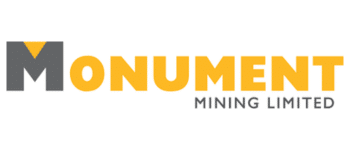Long Shots or Hidden Gems? Canadian Penny Stocks to Watch
Key takeaways
High Risk, High Reward – Penny stocks can deliver massive gains, but they also come with volatility, financial instability, and liquidity risks. Investors should approach them with careful research and risk management.
Sector-Specific Opportunities – These stocks span industries like energy, mining, infrastructure, and technology, meaning their success depends on sector trends like oil prices, gold demand, or tech adoption rather than just market-wide movements.
Long-Term vs. Short-Term Plays – Some penny stocks, like Hemisphere Energy and Poet Technologies, have solid long-term growth potential, while others may be more speculative, making it crucial for investors to align their strategy with the company’s fundamentals.
3 stocks I like better than the ones on this list.The last few years have been exceptionally tough on penny stocks. With higher policy rates, many of these smaller companies that are struggling to grow.
If you’re going to be investing in penny stocks, you need to understand the risks involved and the likelihood that the environment will remain difficult as long as policy rates remain at multi-decade highs.
That said, in this article we’ll go over some Canadian penny stocks that have some potential. In addition to this, we’ve got one of the most comprehensive penny stock guides in the country.
I’ll dig into some of the top penny stock opportunities in Canada first, and then get into the comprehensive guide.
What are the best penny stocks in Canada?
Heavy equipment for infrastructure projects
Tornado Infrastructure Equipment (TSEV:TGH)

Tornado Infrastructure Equipment provides specialized equipment for industrial and municipal infrastructure projects. The company focuses on vacuum excavation and hydrovac technology, which are critical for safely exposing underground utilities during construction. As infrastructure spending grows, Tornado benefits from strong demand for efficient and non-destructive excavation methods.
P/E: 13.1
5 Yr Revenue Growth: 22.0%
5 Yr Earnings Growth: -%
5 Yr Dividend Growth: -%
Yield: -%
Small-cap Canadian oil & gas producer
Hemisphere Energy Corp (TSEV:HME)

Hemisphere Energy is a junior oil and gas company focused on heavy oil production in Western Canada. The company operates a low-cost, high-margin business model, benefiting from enhanced oil recovery techniques. With solid production growth and improving cash flows, it aims to return capital to shareholders while expanding operations.
P/E: 6.1
5 Yr Revenue Growth: 36.6%
5 Yr Earnings Growth: -%
5 Yr Dividend Growth: -%
Yield: 5.5%
West African gold miner
Thor Explorations (TSEV:THX)

Thor Explorations is a junior mining company operating the Segilola Gold Mine in Nigeria. It is one of the few publicly traded companies focused on gold production in West Africa, a region rich in untapped mineral resources. The company is working on expanding its production while also exploring additional assets.
P/E: 4.5
5 Yr Revenue Growth: -%
5 Yr Earnings Growth: -%
5 Yr Dividend Growth: -%
Yield: -%
Gold producer focused on Malaysia
Monument Mining (TSEV:MMY)

Monument Mining operates gold mining projects in Malaysia and Canada. Its flagship Selinsing Gold Mine is a key revenue driver, while the company is also advancing early-stage projects. With gold prices remaining strong, Monument is focused on optimizing production and extending mine life.
P/E: 5.0
5 Yr Revenue Growth: 20.2%
5 Yr Earnings Growth: -%
5 Yr Dividend Growth: -%
Yield: -%
Advanced semiconductor solutions company
Poet Technologies (TSEV:PTK)

Poet Technologies is a high-tech company specializing in photonic integrated circuits (PICs) for data centers, AI, and high-speed communication. Its technology aims to improve efficiency and performance in semiconductor applications, positioning it as a disruptive player in the photonics industry.
P/E: –
5 Yr Revenue Growth: -%
5 Yr Earnings Growth: -%
5 Yr Dividend Growth: -%
Yield: -%
What is the definition of a penny stock?
The definition of a penny stock is quite broad. You’ll get varying answers from different investors. Still, the consensus is that a penny stock is a stock that trades below $5.
However, it’s important to note that a lot of popular stocks, ones that don’t have the volatility or market capitalization of a penny stock, trade below $5. So here are a few more guidelines to help you narrow down your search:
- Penny stocks are typically smaller companies, and their shares are often illiquid (not easy to buy and sell)
- They have a small following and typically are not covered by major analysts
- They usually trade OTC (over-the-counter, more on this later) or through pink sheets.
Canadians often confuse the term small-cap stock with penny stock. Unlike numerous small-cap stocks, you won’t find penny stocks trading on the Toronto Stock Exchange or New York Stock Exchange.
This is often because they are too small to meet the requirements to list on major North American exchanges and don’t file the proper paperwork.
How do I buy penny stocks in Canada?
The first box you need to check off if you want to invest in penny stocks is the ability to handle significant volatility. If you can’t stomach the risk, head to our How to buy stocks page to start investing in the major exchanges.
I like to tell investors looking to start trading the pink sheets to set aside an amount they would be completely comfortable losing. I wouldn’t recommend anyone invest their whole portfolio into penny stocks. But a designated amount, say 5% of your total portfolio, is reasonable.
Many of these penny stocks will not be long-term holds, as most will never come to fruition. You’ll look to trade based on the stock’s momentum and then exit accordingly. Once you’ve allocated some capital towards what I call “fun investing,” you’ll need a brokerage account.
If you already have one, you’re ahead of the game. If not, feel free to check out our Qtrade review. I utilize Qtrade myself and believe it to be the best platform in the country. The brokerage was named the top option in Canada, and I wholeheartedly agree.
One main benefit Qtrade has, especially when you’re buying penny stocks in Canada, is that you don’t need to pay what they call ECN fees to execute a transaction. This can save you a ton of money. When I was with Questrade, I paid as much as $50 per trade because of ECN fees.
Remember that most brokerages charge more than their standard commission rates to buy penny stocks. This is because the stocks are traded over the counter, which is different than processing a transaction on a regular exchange. So, ensure you understand what you’re paying before paying it.
Is it bad to invest in penny stocks?
If you’ve developed the proper strategy, it isn’t wrong to invest in penny stocks.
Where people go wrong is investing money that they can’t afford to lose, which puts them in a challenging emotional and financial position.
Penny stocks are, in the end, a gamble. We don’t have enough fundamental research to form a concrete conclusion about the company’s future. So, you should purchase penny stocks with money you would be comfortable taking to a casino.
As short-term investments, they require a large amount of monitoring as momentum and even a news event can cause considerable movements in price.
Why are penny stocks so cheap?
Penny stocks are often companies that do not meet the requirements or have the funding to list on major exchanges. As such, they typically have low market capitalizations and less stringent requirements.
One requirement to list on major exchanges is a higher share price. With penny stocks, there is no minimum; as such, stocks can trade extremely cheap, sometimes in fractions of a penny. The key to judging the size of a company is not its share price but its market cap. This is an essential concept.
Can you get rich off penny stocks?
Most penny stock newsletters and stock traders will tell you one thing: that penny stocks are the path to riches. It’s quite the opposite.
It is possible to become wealthy by investing in the best Canadian penny stocks. But, you must understand that for every success story, someone striking it rich and retiring early off a penny stock, there are a dozen, if not more, disasters of people risking way more than they were comfortable with and losing it all.
You are likelier to go broke than to strike it rich with penny stocks. So, keep this in mind. Invest in solid, blue-chip stocks with most of your portfolio, and spend expendable capital on small companies like Canadian penny stocks.
Related
Canadian Growth ETFs to Buy

Can you buy penny stocks on Wealthsimple?
Unfortunately, with a brokerage like Wealthsimple Trade, you won’t be able to buy Canadian penny stocks. Why?
When companies aren’t listed on a regular exchange like the NYSE,NASDAQ or TSX, they are traded via a broker-dealer network. Transactions occur via a bulletin board (the OTCBB) and Pink Sheet listing services.
These broker-dealer networks communicate with each other and act as market makers. They will locate shares available for purchase or sale and negotiate a price for a fee.
Although most stocks trading over-the-counter cannot make it on the major exchanges due to regulations, they still need to meet requirements to trade OTC. It’s not only penny stocks that trade over the counter, either. For example, companies may also issue bonds over the counter.
If you want to find a brokerage allowing penny stock trades, you’ll need to stick to one that deals with OTC transitions like Qtrade.
Tips when buying penny stocks
Before you get started, I’ll drop you a few quick pointers to buy penny stocks here in Canada successfully. This is by no means a complete list; however, they are some of the most, if not the most, important things you need to know so you don’t lose your money.
- When buying penny stocks, be aware that smaller-sized entities may not be required to file documents with the Securities and Exchange Commission (SEC), something bigger companies are required to do. This makes determining a company’s financial health nearly impossible, which is why purchasing penny stocks is often thought of as nothing more than a gamble.
- To reduce your risk, try investing in companies listed on the OTCQX or OTCQB exchanges. These are the top and middle tiers of penny stocks, and companies listed on these exchanges will likely have accurate financial information. They will file it on time as well. You could even go to higher Canadian exchanges like the TSX Venture Exchange, where reporting is even more stringent.
- Suppose you’re looking for some of the highest returns, albeit the highest risk. In that case, OTC Pink is the lowest tier of penny stocks regarding the financial information provided. These stocks are the most volatile, so they bring with them the highest potential profitability. However, the higher the reward, the higher the risk.
- There are a ton of penny stocks out there, and I suggest using a screener to identify and narrow down your potential list of suitable companies.
- Knowledge of technical analysis is crucial when trading penny stocks. Because limited or inaccurate financial information is available to most investors, fundamental analysis almost plays no part in picking stocks. It can be as simple as promoters featuring the company in a popular newsletter to send the price soaring.
- Analyze the management team. More than anything, they will be responsible for the inevitable failure or success of the company. With startups, in particular, there will be a lot of crucial decisions made by the management team that can make or break an over-the-counter company.
- Avoid social media. Many people promoting penny stocks on social media will be paid to do so.
- Avoid investing in these stocks in your TFSA or RRSP. Use accounts where you can file capital losses if you lose your money. Your tax-sheltered accounts are too valuable to lose the space.

